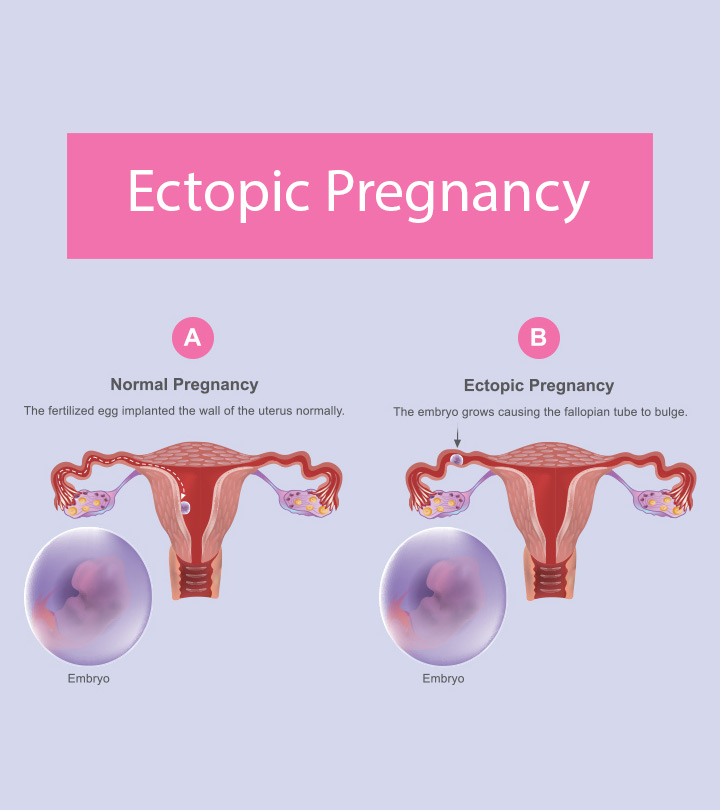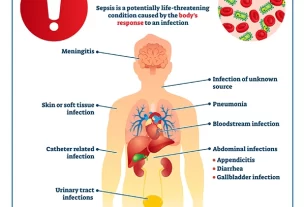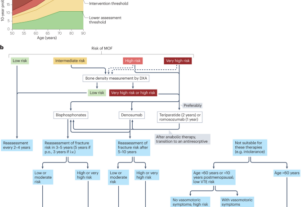Imagine the bustling streets of a busy city, filled with the vibrant rhythm of life.
Amidst all the excitement, hidden stories often go unnoticed.
Today, we’re here to uncover one such tale – the mysterious world of ectopic pregnancy.
Brace yourself for a journey that will shed light on the enigmatic symptoms, the delicate balance, and the urgent need to seek medical advice.
Get ready to delve into a captivating story that could save lives.
ectopic pregnancy
An ectopic pregnancy occurs when a fertilized egg implants and grows outside the main cavity of the uterus.
It most commonly occurs in the fallopian tube, but can also occur in other areas of the body such as the ovary, abdominal cavity, or the lower part of the uterus.
Symptoms of ectopic pregnancy usually develop between the 4th and 12th weeks of pregnancy and include missed period, positive pregnancy test, vaginal bleeding (which may be watery and dark brown), tummy pain (typically low down on one side), shoulder tip pain, and discomfort when going to the toilet.
These symptoms can also be caused by other conditions, but medical advice should be sought if pregnant and experiencing them.
If left untreated, ectopic pregnancy can cause life-threatening bleeding.
Key Points:
- Ectopic pregnancy occurs when a fertilized egg implants and grows outside the uterus.
- It commonly occurs in the fallopian tube, but can occur in other areas of the body.
- Symptoms typically develop between the 4th and 12th weeks of pregnancy.
- Symptoms include missed period, positive pregnancy test, vaginal bleeding, tummy pain, shoulder tip pain, and discomfort while urinating.
- The symptoms can also be caused by other conditions, but medical advice should be sought.
- If left untreated, ectopic pregnancy can cause life-threatening bleeding.
ectopic pregnancy – Watch Video
💡
Pro Tips:
1. Ectopic pregnancies are estimated to occur in about 1-2% of all pregnancies.
2. The term “ectopic” comes from the Greek words “ek” meaning “out” and “topos” meaning “place,” referring to the fertilized egg implanting outside of the uterus instead of its normal location.
3. Ectopic pregnancies can occur in various places outside the uterus, with the most common being the fallopian tubes. However, they can also occur in the cervix, ovary, or even the abdominal cavity.
4. Ectopic pregnancies can cause symptoms such as abdominal pain, vaginal bleeding, and shoulder pain, as well as dizziness or fainting due to internal bleeding.
5. While some ectopic pregnancies may resolve on their own, they often require medical intervention such as medication or surgery to prevent complications like rupture or severe bleeding.
Development Of Symptoms In Ectopic Pregnancy
Symptoms of an ectopic pregnancy typically appear between the 4th and 12th weeks of pregnancy, although the precise timing may differ among individuals. These symptoms tend to manifest gradually, making it easy for patients to overlook the possibility of an ectopic pregnancy. However, it is critical to recognize and understand these symptoms in order to promptly seek medical assistance.
Main Symptoms Of Ectopic Pregnancy
The main symptoms of ectopic pregnancy can sometimes be confusing, as they are also typical signs of a normal pregnancy. These symptoms include a missed period and a positive pregnancy test. Additionally, individuals may experience other signs of pregnancy, such as breast tenderness and nausea. However, it is important to pay attention to any deviations from the normal course of pregnancy.
Characteristics Of Vaginal Bleeding In Ectopic Pregnancy
Vaginal bleeding during ectopic pregnancy may differ from bleeding experienced during a normal pregnancy. In ectopic pregnancy, the bleeding may be watery and dark brown in color. It is important to seek medical advice when experiencing vaginal bleeding, as it can also occur in other conditions such as miscarriage or early stages of pregnancy.
Symptoms accompanying ectopic pregnancy include abdominal pain and other related symptoms.
It is crucial to seek medical advice in such cases to determine the cause of the bleeding and to receive appropriate treatment.
- Seeking medical advice is crucial for any vaginal bleeding.
- Ectopic pregnancy can cause watery and dark brown bleeding.
- Abdominal pain is a common symptom of ectopic pregnancy.
“It is important to note that vaginal bleeding can also occur in other conditions, such as miscarriage or the early stages of pregnancy, so seeking medical advice is crucial.”
Tummy Pain Associated With Ectopic Pregnancy
Tummy pain is a common symptom associated with ectopic pregnancies. This pain is typically felt low down on one side and can develop suddenly or gradually. It is important to note that this pain can be continuous or intermittent. If you experience tummy pain during pregnancy, especially on one side, it is essential to seek medical attention promptly to rule out any potential complications.
Shoulder Tip Pain As A Sign Of Internal Bleeding
Shoulder tip pain in the context of ectopic pregnancy can indicate internal bleeding. This pain is typically felt at the point where the shoulder ends and the arm begins. If you experience severe, sudden, or persistent shoulder tip pain, it is vital to seek immediate medical attention. Internal bleeding in such cases can be life-threatening.
- Internal bleeding can be signaled by shoulder tip pain
- Shoulder tip pain is felt at the point where the shoulder ends and the arm begins
- Immediate medical attention is crucial for severe, sudden or persistent shoulder tip pain
Discomfort During Bodily Functions With Ectopic Pregnancy
Ectopic pregnancy can cause discomfort during various bodily functions. Individuals may experience pain or pressure in the bottom when going to the toilet. They may also experience pain during urination and episodes of diarrhea. While these symptoms can be indicative of other conditions, such as urinary tract infections or stomach bugs, pregnant individuals experiencing these symptoms should seek medical advice to rule out the possibility of an ectopic pregnancy.
Comparisons To Other Common Conditions
It is crucial to differentiate the symptoms of ectopic pregnancy from other common conditions. The symptoms mentioned above may also be caused by urinary tract infections and stomach bugs. However, the presence of a missed period, positive pregnancy test, and potentially different characteristics of vaginal bleeding should raise concerns and prompt medical evaluation, especially in pregnant individuals.
Definition Of Ectopic Pregnancy
An ectopic pregnancy is when a fertilized egg implants and grows outside the main cavity of the uterus. While most ectopic pregnancies happen in the fallopian tube, they can also occur in other areas such as the ovary, abdominal cavity, or lower part of the uterus (cervix). It is crucial to understand this definition and be familiar with the possible locations for an ectopic pregnancy to occur.
- Key points:
- Ectopic pregnancy is when a fertilized egg implants outside the uterus.
- Most common location is the fallopian tube.
- Can also occur in the ovary, abdominal cavity, or cervix.
“An ectopic pregnancy occurs when a fertilized egg implants and grows outside the main cavity of the uterus.”
Locations Where Ectopic Pregnancy Can Occur
An ectopic pregnancy can occur in various locations in the body. The fallopian tubes are the most common site, but other potential locations include the ovary, abdominal cavity, or the lower part of the uterus (cervix). Early identification of the location is crucial for appropriate treatment and management.
Potential Consequences If Left Untreated
If left untreated, ectopic pregnancy can lead to life-threatening complications, particularly due to the risk of internal bleeding. Internal bleeding can cause severe pain, hemorrhagic shock, and even death. Therefore, prompt diagnosis and treatment are essential to minimize the potential consequences of an ectopic pregnancy.
Recognizing the symptoms of ectopic pregnancy is crucial for early diagnosis and prompt medical attention. The main symptoms include a missed period, positive pregnancy test, and other signs of pregnancy. Vaginal bleeding during ectopic pregnancy may be watery and dark brown in color. Tummy pain, shoulder tip pain, and discomfort during bodily functions can also be indicative of an ectopic pregnancy. It is important to seek medical advice if pregnant and experiencing these symptoms, as proper diagnosis and treatment can prevent life-threatening complications. Understanding the definition, possible locations, and potential consequences of an ectopic pregnancy is vital in order to ensure the best possible outcome for the patient.
💡
You may need to know these questions about ectopic pregnancy
What are the warning signs of ectopic pregnancy?
Warning signs of ectopic pregnancy include severe abdominal or pelvic pain coupled with vaginal bleeding, which may indicate internal bleeding. Additionally, individuals may experience extreme lightheadedness or fainting as the ectopic pregnancy progresses. Another warning sign is shoulder pain, which may occur due to blood irritating the diaphragm or surrounding nerves, resulting in referred pain to the shoulder. These symptoms should not be ignored and prompt medical attention should be sought to prevent any further complications.
Can you still have a baby with an ectopic pregnancy?
Yes, it is still possible to have a baby after experiencing an ectopic pregnancy. Although there is a risk for recurrence, the majority of women who have undergone treatment for ectopic pregnancy are able to achieve a successful pregnancy in the future. Even if one fallopian tube is lost as part of the therapy, conception can still occur through the remaining tube or even with the assistance of fertility treatments. It is crucial to collaborate with your healthcare team when planning for a future pregnancy to ensure proper monitoring and support to minimize the risk of another ectopic pregnancy.
How many weeks does ectopic pregnancy start?
Ectopic pregnancy typically begins between the 4th and 12th weeks of pregnancy when symptoms start to manifest. It is important to note that while some women may not experience any symptoms initially, it is crucial to seek medical attention if any concerning signs arise during this period.
How serious is an ectopic pregnancy?
Ectopic pregnancy is a medical emergency that requires immediate attention. This condition poses a significant threat to maternal health as it can lead to severe complications, including internal bleeding and potential fatality. Prioritizing early detection and timely intervention is crucial to mitigate the seriousness of an ectopic pregnancy and safeguard the well-being of the mother. By increasing awareness about this condition, women can be better equipped to recognize its symptoms and seek prompt medical assistance, mitigating the potential severity of an ectopic pregnancy.
Reference source
https://www.acog.org/womens-health/faqs/ectopic-pregnancy
https://www.mayoclinic.org/diseases-conditions/ectopic-pregnancy/symptoms-causes/syc-20372088
https://www.mayoclinichealthsystem.org/hometown-health/speaking-of-health/ectopic-pregnancy-signs-treatment-and-future-fertility
https://www.nhs.uk/conditions/ectopic-pregnancy/symptoms/



